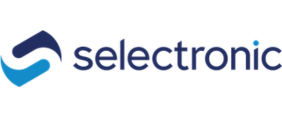In today’s competitive engineering job market, standing out from the crowd is crucial. One way to achieve this edge is by demonstrating a deep understanding of the company you’re applying to. This article dives into the “why” and “how” of effective company research, empowering you to impress hiring managers and land your dream engineering role.
Why Researching the Company Matters
1. Stand Out From the Crowd:
Imagine walking into an interview and discussing the company’s latest project with genuine interest. This showcases a level of initiative far exceeding applicants who simply regurgitate basic information from the job description. Research demonstrates your commitment to the company and positions you as a well-informed candidate ready to contribute from day one.
2. Demonstrate Genuine Interest:
Passion for the company’s mission and products is a powerful force. Research allows you to identify aspects of the company’s work that resonate with your own technical interests. Highlighting these synergies during your interview shows genuine enthusiasm for the role and fosters a connection with the hiring manager.
3. Ask Thoughtful Questions:
By delving into the company’s recent projects, technical focus, and industry trends, you’ll formulate insightful questions that go beyond basic inquiries about the position itself. This analytical approach showcases your critical thinking skills and genuine curiosity about the company’s future direction.
Essential Research Areas for Engineers
1. Company Overview
- Mission, Vision, and Values: Understand the company’s core principles and goals. Do their values align with your own career aspirations?
- Products and Services: What problems are they solving? Who are their target customers? Understanding their offerings helps you tailor your skills to their specific needs.
- Industry Standing and Market Position: Analyze their success within the industry. Are they market leaders or innovative disruptors? This context helps you evaluate potential career growth opportunities.
2. Technical Focus
- Recent Projects and Innovations: Stay updated on the company’s engineering work. Analyze the technical challenges they’re tackling and explore their solutions. This demonstrates your awareness of their cutting-edge projects and ability to contribute.
- Technologies Used: Identify the programming languages, frameworks, and tools they utilize. Highlight any relevant skills you possess that align with their tech stack.
- Industry Trends and Challenges: Research the broader industry landscape. What are the key technical trends and challenges impacting the company’s work? Demonstrating this knowledge positions you as an engineer who can adapt and innovate.
3. Company Culture
- Work Environment and Employee Reviews: Gain insights into the company’s work style and atmosphere. Does it prioritize collaboration or independent work? Reading employee reviews (focusing on trends, not individual complaints) can provide valuable cultural context.
- Recognition and Development Programs: Does the company invest in employee growth? Understanding their approach to professional development helps assess if their values align with your career goals.
- Team Structure and Collaboration: Research how engineering teams are structured. Does the company foster a collaborative environment or a more siloed approach? This helps you determine if their working style aligns with your preferences.
Beyond the Website: Unveiling Deeper Insights
While the company website is a valuable resource, go beyond the surface level to gain a richer understanding. Explore these avenues:
- Company News and Press Releases: Stay updated on their latest developments, partnerships, or funding rounds.
- Social Media Presence: Observe their social media interactions to gain insights into their company culture and how they engage with the industry.
- Employee Reviews on Glassdoor or Blind: While not always perfect, these platforms can reveal trends about employee satisfaction and work-life balance. Remember to focus on overall sentiment rather than individual experiences.
- Industry Publications and Articles: Research publications that cover the company’s industry. Analyze industry trends and challenges to showcase your ability to think strategically.
Putting Your Research to Work
Now that you’ve gathered valuable insights, leverage them effectively:
- Tailoring Your Cover Letter and Resume: Highlight your skills and experience most relevant to the company’s projects and technical focus.
- Formulating Smart Interview Questions: Prepare well-considered questions that demonstrate your research and analytical thinking.
- Showcasing Your Enthusiasm and Passion: Express genuine interest in the company’s work and mission. Enthusiasm is contagious and shows your desire to be part of their journey.
Additional Tips and Resources
- Start Your Research Early: Begin gathering information well in advance of applying for a position. This allows you to delve deeper and formulate thoughtful insights.
- Keep Notes and Organize Your Findings: Create a system for note-taking and organizing your research. This will be invaluable in crafting targeted cover letters and interview talking.
- Be Authentic and Show Your Personality: While research is crucial, don’t let it overshadow your unique personality and skills. Let your research complement your individual strengths and highlight your potential as a valuable addition to the team.
Remember: Your research is a tool to enhance your candidacy, not a script to follow. Integrate your findings naturally into your interview conversation and tailor your approach to each specific company.
Taking it a Step Further:
For a truly impactful interview, consider these bonus strategies:
- Identify a Specific Project or Challenge: Research a current project the company is facing and brainstorm potential solutions you could contribute.
- Connect with Current Employees: If possible, try to connect with current employees on platforms like LinkedIn. Their insights can offer a valuable perspective on the company culture and work environment.
- Prepare for Behavioral Interview Questions: Research common behavioral interview questions and practice crafting responses that showcase your skills and experiences relevant to the company’s needs.
Conclusion
By investing time in thorough research and showcasing your genuine interest, you’ll be well on your way to impressing hiring managers and landing your dream engineering role. Remember, research is an ongoing process. Stay updated on industry trends and the company’s progress to maintain a competitive edge throughout your career journey.
Land Your Dream Engineering Job: Expert Support from RunTime
At RunTime Recruitment, our team of engineers-turned-recruiters boasts a 90% success rate in placing engineers in their dream jobs. We don’t just find you a job, we find you the perfect fit. Get matched with opportunities that align with your skills, experience, and career goals in the embedded systems industry.
Explore RunTime’s job board and connect with our team today to leverage our expertise and land your dream engineering role!









